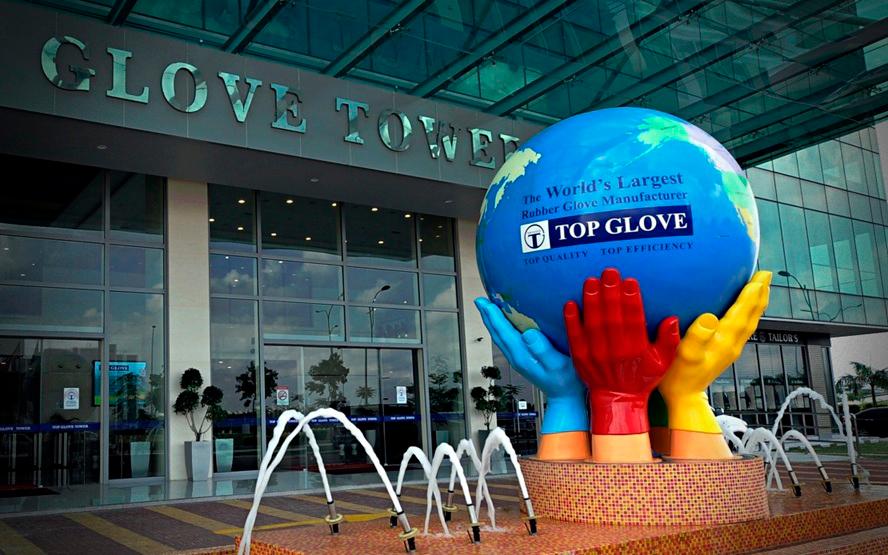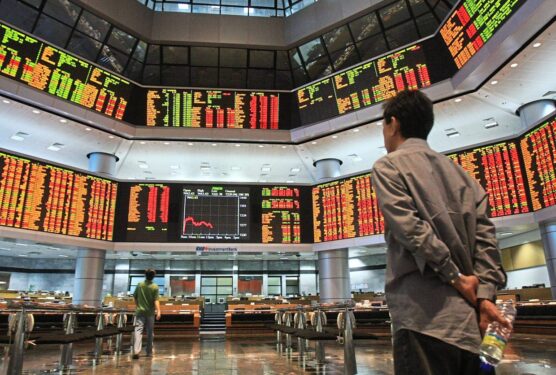Lofty valuations and difficult market conditions were cited by analysts as the main reasons for the underperformance of the mega initial public offerings (IPOs) that took place in Bursa Malaysia over the last six years.
There were five mega IPOs on the bourse from the period of 2014 to 2020, namely IOI Properties Group Bhd in 2014, Malakoff Corp Bhd in 2015, Eco World International Bhd and Lotte Chemical Titan in 2017, and Leong Hup International Bhd in 2019.

The past decade saw the debut of 196 IPOs on Bursa Malaysia, translating into 19 new listings per year on average.
VIncent Lau, vice president at Rakuten Trade, told FocusM that the promoters of these mega IPOs had sought very high valuations when their companies got listed.
“The promoters of these mega IPOs had sought lofty valuations when they first were listed and many of these valuations were unsustainable. This explains their relative underperformance during current times,” he said.
He said another reason for their underperformance was that they were involved in relatively unexciting industries where growth had plateaued.
“Investors are looking for high growth companies but unfortunately these mega IPOs were all involved in businesses of the old economy which do not appeal much to investors,” added Lau.
Meanwhile, Phillip Mutual Bhd chief strategy officer Phua Lee Kerk told FocusM that it was difficult to gauge the performance of these mega IPOs at the current juncture during the Covid-19 pandemic which has distorted prices.
“Now is not the time to assess the performance of these companies as we are in the midst of a pandemic. Any meaningful assessment can only be done post-Covid-19 when we have a better picture of all the factors affecting the share prices of these companies,” he said.
IOI Properties, which was listed in 2014 at an IPO price of RM2.51, closed trading at RM1.13 on June 4.
William Ng, chief investment officer at Leinves PLT, told FocusM that one of the reasons for the weak share price performance of the company was due to a loss of confidence in the company after the passing away of its founder, Tan Sri Lee Shin Cheng.
“Although the company’s business was run by Lee’s two sons, the market was still not convinced of their skills to navigate the company. Further, the company was involved in the property sector which has seen tough times recently and these factors explain the relative underperformance of its share price,” said Ng.
Malakoff, which was listed in 2015 at an IPO price of RM1.80, had seen its share price almost dwindle by more than half to 87 sen now. The company, which is controlled by tycoon Tan Sri Syed Mokhtar Albukhary, is in the power business.
“Malakoff’s lethargic share price is partly attributable to the fact that the power generation business is viewed by investors as a ‘boring’ business devoid of catalysts,” said Ng.
Meanwhile Ng said Eco World International, which had done its IPO in 2017, was one of the better-run property companies around but it was in a difficult industry.
“If you look at the financials of Eco World, it has the best numbers among property companies but share price has been weak due to it being in the property sector which has not whet the appetite of investors of late,” added Ng. Eco World’s IPO price was RM1.20 and its current share price is 49.5 sen.
Lotte Chemical, which was listed in 2017 at an IPO price of RM6.50, is currently trading at RM2.29. Ng attributed its share price weakness to disclosure issues it had regarding the water facilities at its plant which had given a negative image to investors.
Poultry company Leong Hup International, which was listed in 2019 and was the biggest IPO in that year, also saw weak performance of its share price. Its IPO price was RM1.10 and it currently trades at 65 sen. Ng said the company is in an industry where competition is keen and margins slim and these factors have affected its share price performance.
Meanwhile, Lau advised investors to take advantage of the low prices currently, to average down their holdings.
“The downtrend in prices presents an opportunity to average down their holdings as these companies have solid businesses and will benefit when the market stages a comeback,” said Lau.
Ng of Leinves PLT said it would be difficult to pick out the companies with the greatest rebound potential, but added that Lotte Chemical would be a potential beneficiary of the company’s ongoing restructuring which may see some upward movement in prices.
“As for the companies involved in property, Eco World International and IOI Property, things do not look bright for the property sector, but a catalyst in the form of government policy could tweak the fortunes of these companies. As for Malakoff, there may be upward potential for the company if it enters the renewable energy space as that sector is garnering a lot of interest,” added Ng. – June 5, 2020









